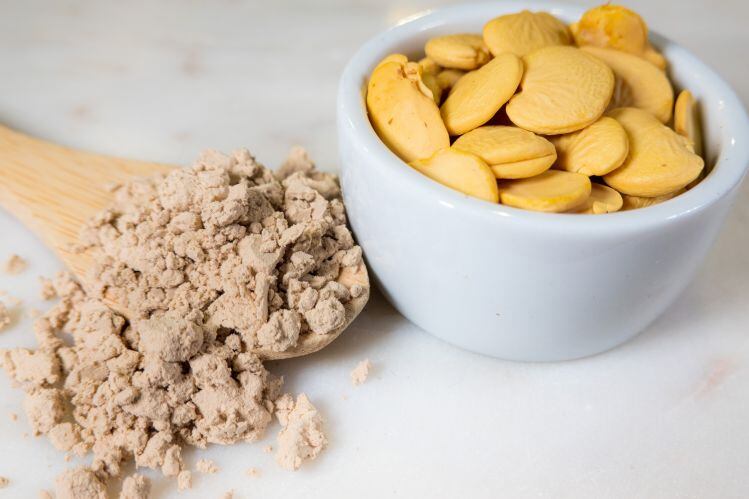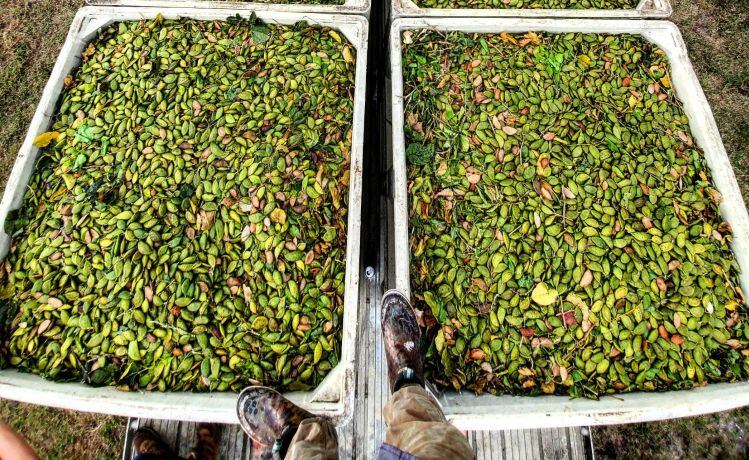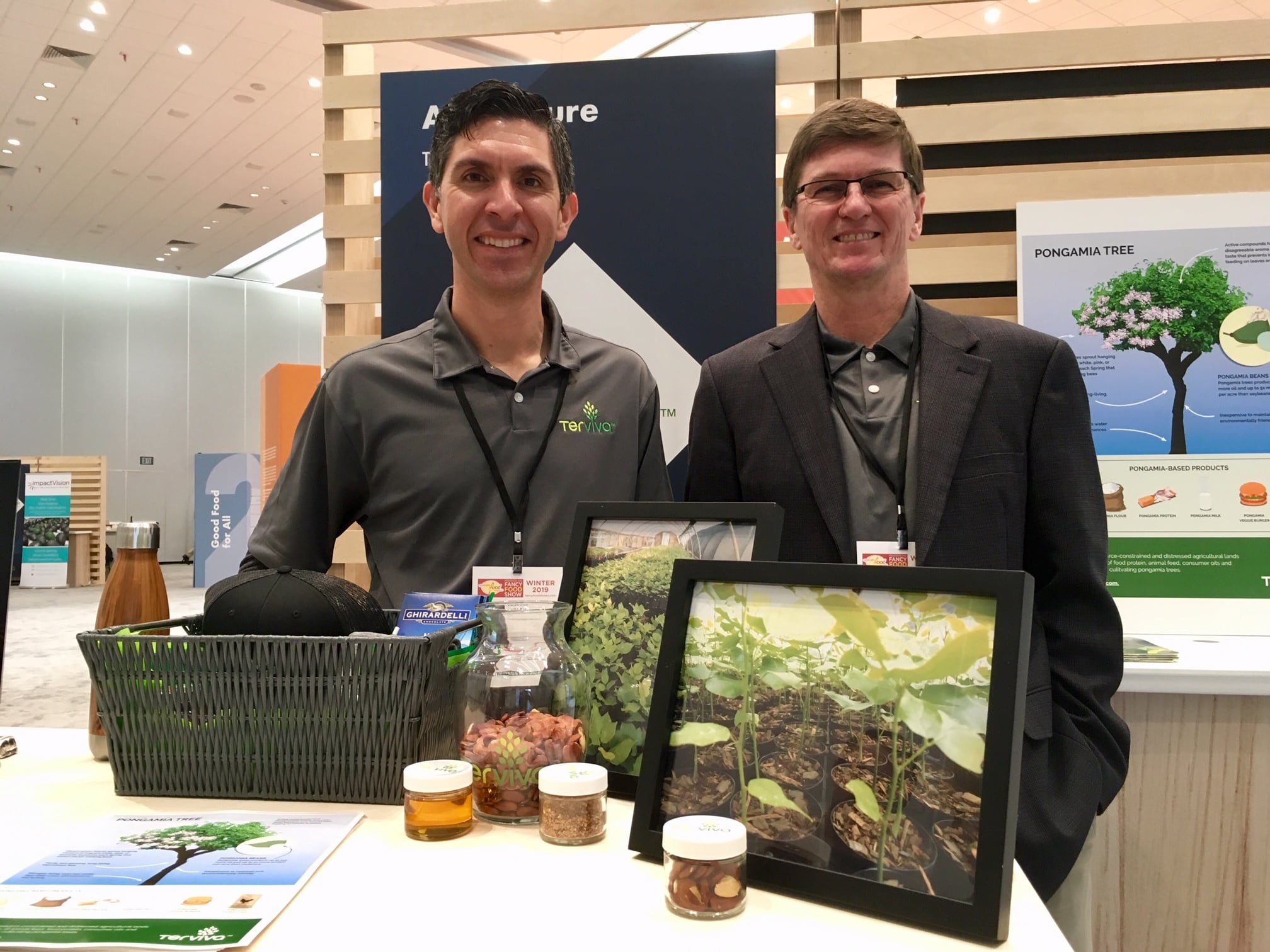Terviva – which aims to have commercial quantities of 'golden buttery' oil available by mid-2022, with ‘highly soluble’ protein isolates to follow in 2023 – will work with Danone and San Francisco based innovation platform MISTA to develop new food products that use oil and protein from Pongamia trees that produce significantly more biomass per acre than soybeans with a fraction of the water, fertilizer, and pesticides, claimed Terviva founder and CEO Naveen Sikka.
On idle agricultural land, an orchard of Pongamia trees captures 115 metric tons of carbon per acre over 30 years, putting it among the most sustainable sources of edible oil and plant protein, claimed Sikka, who founded Terviva in 2010 with Maggie Kavalaris, Anne Slaughter, and Joe Andrew.
“We believe that healthy foods need a healthy planet with thriving ecosystems and strong, resilient social structures,” said Merijn Dols, global director of open innovation & circular economy for food of Danone. “This is why we are excited to team up with Terviva to co-develop important ingredients – edible protein and oil – from the Pongamia tree, while also rehabilitating the soil the tree grows in.”
The collaboration with Danone will "introduce Pongamia oil and plant protein to a broad range of food and beverage applications - including some new products as well as adapting existing products," said Terviva, although it can't share any more details at this stage.
'Our head of agronomy refers to it as ‘jungle tough.’ It's a remarkable tree'
Pongamia trees – sometimes referred to as ‘vertical soy’ as they produce seeds with high levels of protein and oil – have not historically been used as a food crop owing to anti-nutritional factors.
However, Terviva has developed proprietary techniques that remove anti-nutritional components during processing, opening up new food and beverage market opportunities for the “incredibly robust” nitrogen-fixing crop, which requires minimal inputs, SVP products & processing Dr Jim Astwood told FoodNavigator-USA in a recent interview.
“It's a leguminous tree, so it fixes nitrogen and does well in poor soils without fertilizers. Plus, it’s drought tolerant and flood tolerant, our head of agronomy refers to it as ‘jungle tough.’ It's a remarkable tree.”
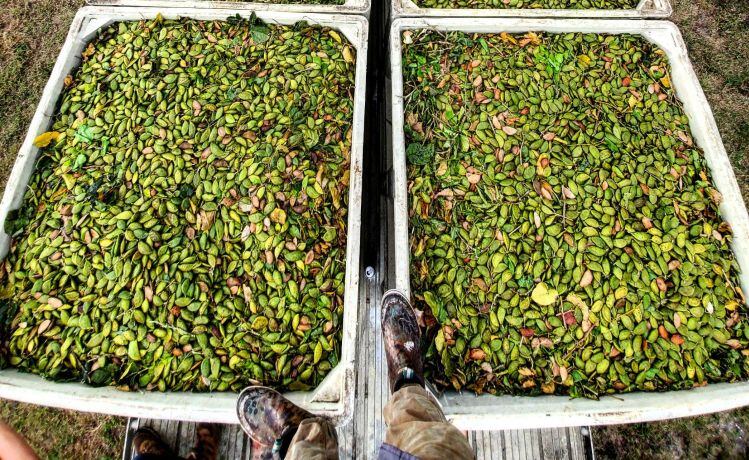
Sourcing and capacity
Terviva has also built an IP platform around high-yielding Pongamia trees coupled with propagation techniques that deliver scalable, consistent crops in a variety of locations from Florida (where it partners with fruit growers devastated by citrus greening disease); to Hawaii (on land previously dedicated to sugarcane); to Australia; although it also sources beans from Pongamia trees in India, said Astwood.
“We produce the Pongamia trees; so we do the grafting in greenhouses. We sell the trees to growers, and after three to four years they start becoming productive in the yield sense, and after that we buy back the beans for further processing into food ingredients. But we also utilize beans that are aggregated through wild harvest by communities in India.
“So supply isn’t a problem, the biggest constraint is manufacturing capacity.”
'Sustainability is almost just a ticket for entry into the station'
Right now, Terviva is producing samples for potential partners from pilot-scale facilities, said Astwood, who has garnered encouraging feedback from CPG and foodservice companies seeking ingredients with strong sustainability credentials along with attractive pricing, nutritional, functional, and sensory qualities.
“What’s really changed just over the last two years or so is that sustainability is almost just a ticket for entry into the station, so we’ve found that to be extremely powerful in our conversations with the global folks.”
He added: “We already have commercial Pongamia bean crushing capacity and are adding our oil processing plant this summer.
“Protein requires additional processing steps to make fully defatted meal, from which the protein isolate is made, and these come online in 2023 in the US. We plan to produce oil in India for sale in India in 2023. We think the oil product will be a hit in the US market, and potentially bigger in Southeast Asia, especially India,” added Astwood, who has been working with product innovation firm Mattson to test golden Pongamia oil and Pongamia plant proteins in multiple applications from vegan mayo to protein shakes.
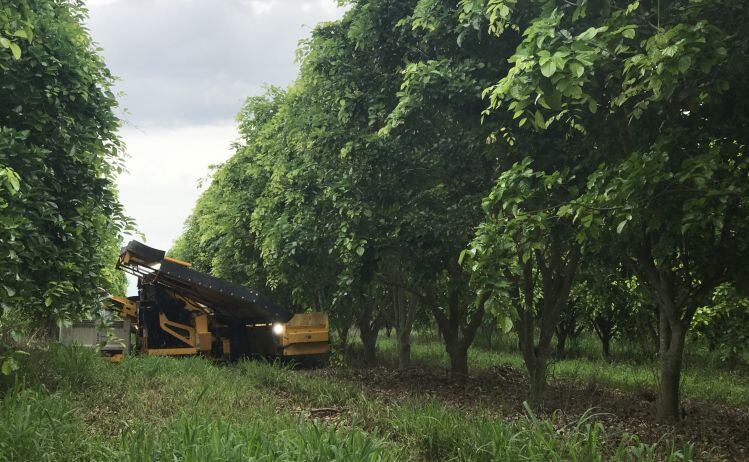
Pongamia vegetable oil: Golden color and buttery taste
The mid-oleic oil – which is semi-solid in the fridge – has an appealing golden color and buttery flavor with nutty notes, with strong potential in a range of applications from culinary oils to salad dressings, mayo, and plant-based meat products, he said.
“Think of it as something between a traditional RBD [Refined, Bleached & Deodorized] oil like a canola or soy, versus say extra virgin olive oil which is usually done by expeller pressing, and so we're right in between that. From a pricing perspective, it will cost a bit more than a standard canola oil, but certainly much less than premium oils like avocado. So, we'll be competitive with sunflower, so it’s accessible.”
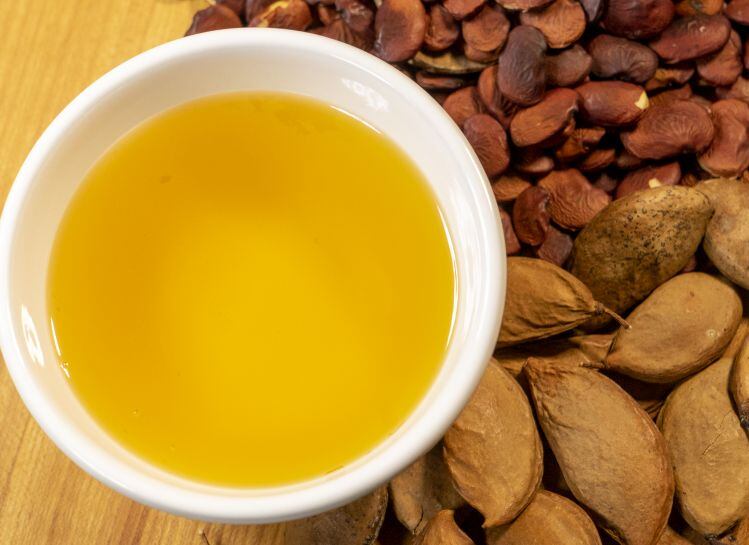
Pongamia plant protein: Highly soluble, neutral taste, smooth texture
The protein isolates – coming to market in 2023 – are garnering interest because of their neutral taste, attractive PDCAAS score (.85) vs some other plant proteins, and high solubility, said Astwood, who said application work was progressing in a variety of areas from nutrition bars, beverages and shakes to plant-based cheeses, yogurts and meat alternatives.
“The protein is highly soluble, much more so than soy and pea, so it has potential in beverages, there’s no grittiness and it doesn’t have the off notes of some other plant proteins, which often need masking.”
Regulatory status
From a regulatory perspective, Terviva is putting together GRAS determinations for its ingredients to access the US market, and will be working through the relevant regulatory frameworks in several other markets, said Astwood.
“On the oil, we're working on our toxicology package right now and expect to have the expert [GRAS] panel review in early fourth quarter this year.”
* The latest financing round was led by investors including Astera Institute (led by Jed McCaleb), Evans Properties, Trustbridge Partners, The Jeremy and Hannelore Grantham Environmental Trust, Ron Edwards (co-founder SoBe and Blue Buffalo Pet Food), Landis Becker Young and Brace Young (Chair of Social Finance), Mark Tercek (former CEO of The Nature Conservancy), Bryan Meehan (Executive Chair, Blue Bottle Coffee), Brent Magid (CEO of Magid, a leading global consulting firm) and Howard Fischer (Founder of Gratitude Railroad).
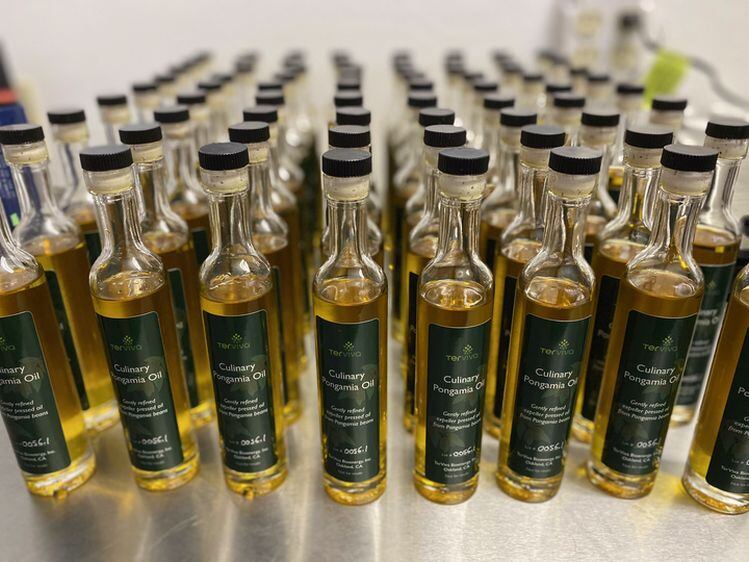
According to Mattson, a Bay area based product innovation firm which has been working with Terviva over the past year, “We have found that the unique attributes of the Pongamia oil, in particular, the deep golden color and rich buttery texture, provide the opportunity for some manufacturers to create finished products of superior quality while leveraging a carbon-negative ingredient.
“During the course of our work with Pongamia protein, we found that its mild nutty flavor and light color makes masking and building authentic flavor in plant-based products easier than with traditional plant proteins.”

